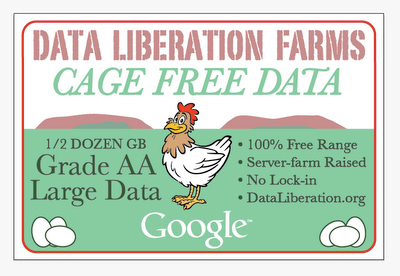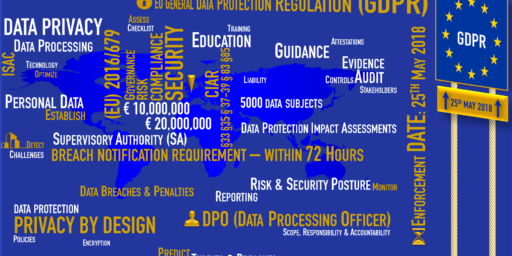Google Makes it Easy To Leave
 Gizmodo’s Nate Anderson has an interesting piece on Google’s “cage free data” policy, which makes it easy to export the data you store in Gmail, Google Docs, Picasa and other of their systems. The rationale behind it is not, as I’d have expected, giving users a sense of confidence — knowing you can leave makes trying a new product less of a risk — but to force itself to keep innovating and therefore good enough that people actually want to stay.
Gizmodo’s Nate Anderson has an interesting piece on Google’s “cage free data” policy, which makes it easy to export the data you store in Gmail, Google Docs, Picasa and other of their systems. The rationale behind it is not, as I’d have expected, giving users a sense of confidence — knowing you can leave makes trying a new product less of a risk — but to force itself to keep innovating and therefore good enough that people actually want to stay.
Data lock-in isn’t bad just for users; Fitzpatrick argues that it’s also bad for Google. “If you create a user base that’s locked in,” he says, “there’s no way you’re not going to become complacent.”
Making it as easy to leave Google Docs as to leave the Google search engine plays to one of Google’s strengths: hiring really smart people. DLF’s work “sets that fire under an engineering team,” Fitzpatrick says, since the engineers need to keep users happy through innovation, not lock-in.
Do people actually care about liberating their data? Some do, but usage of the export features remains low. Google sees a “continuous low-level of use of these things,” said one engineer on the team, especially when it chooses to shut down underperforming services. Having export tools actually makes it easier to do such shutdowns, too; recall that DRM-laden music stores ran into problems when they eventually tried to shut down their DRM servers. Google’s data openness helps the company avoid this sort of public criticism in the event of service shutdowns, as when the company closed its Google Notebook product.
Makes sense to me. And this isn’t the case for some other online behemoths like Facebook and Twitter. Building up a social network takes a ridiculous amount of work and it’s mostly lost if you leave for another network. Or if the network goes belly up, as happened with Friendster and some predict is happening now with MySpace.





